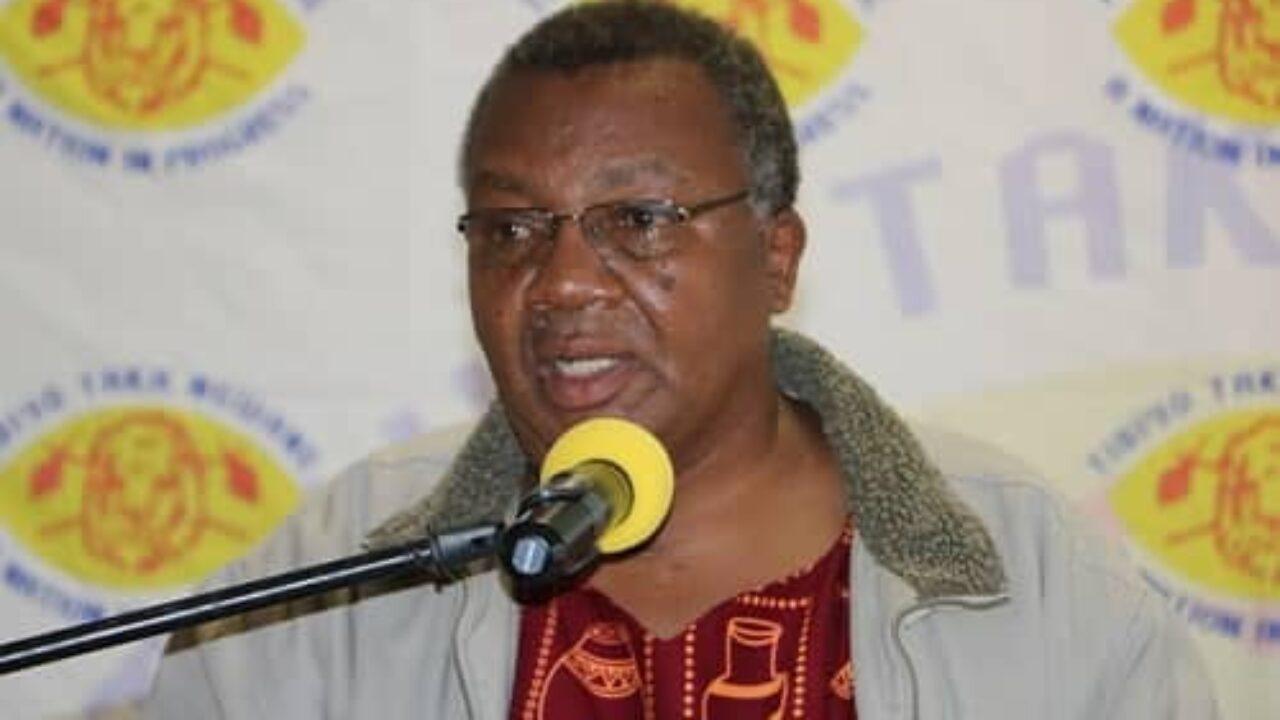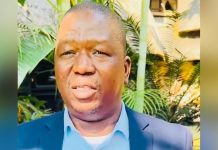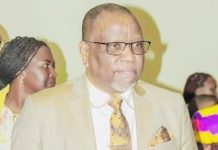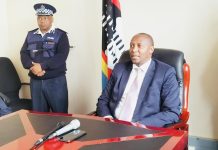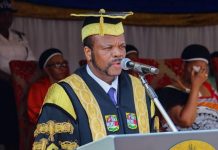Africa-Press – Eswatini. I am uncomfortable writing about Absalom Themba Dlamini for many reasons, the main one being that he was instrumental in my crossing the floor to this media house.
The second one being that as the managing director at Tibiyo, he owns this newspaper.
Yet, as a true son of the soil and a former prime minister who gave us five good years of corporate governance, it is almost criminal to resist the temptation to make reference to his passion – if not contribution to the well-being of this country.
I often will make this disclaimer when it is, therefore, unavoidable to refer to him or draw from his wealth of experience and contribution to his time at hospital hill in the period 2003-08 when all things seem to fall in to place.
I was forced to go this route while composing my thoughts as to how best today’s topic can be handled, largely because of the recent events that have once more given the people of this country to dream that the fight against corruption can be won – as it was during his time when he was the prime minister of this country.
In part, Absalom Themba Dlamini was one of our revered prime minister, and you will find very few people who will argue against this. Those who do, we cannot help them. Perhaps if there are, they will also have a problem with me writing about my boss, so to say.
But, that’s their problem, not mine. I do intend to argue the case for it, and pray that who are open minded do see the point at the end of this piece.
There are two reasons why I thought it was perhaps relevant and timely to refer to his time as prime minister. One, that he is now one of three remaining prime ministers of this country in more than 20-30 years (wait, let me doublecheck that).
Apart from Prime Mabandla, who I have had the honour and privilege to meet and talk to, only the recent prime minister Cleopas Dlamini remains as one of our premiers. The other prime ministers, sadly, are no longer with its.
So, it makes A.T, as he is passionately referred to in our shores, a very special man and a treasure for this country. It is based on this that I looked at his picture in the front page of Thursday’s Observer with fondness and pride. Pictured with the current prime minister Russell Dlamini, the man looked very happy.
A.T had gone to Hospital Hill to pay a courtesy call on the prime minister, one of those things that make him special as a man and a politician. He is always available to share his experience and insight, if not wisdom. He has done it for the two previous prime ministers of course, Ambrose Mandvulo Dlamini and Cleopas. Incidentally, both these two men went to Salesian High School!
But I digress.
It has therefore become a very good tradition for A.T to drive up to Hospital Hill and give his insight into what the job entails and what his own experience taught him. Last Tuesday was the third time he had done it and from what I am told, the prime minister – and those before him – appreciated the engagement immensely.
Apart from serving a full term as prime minister, A.T actually did very well at the helm of Cabinet. He gave us belief. He changed the status-quo and literally fought corruption. He is in the record books of this country having restored the rule of law, having come in at the time when this country was in turmoil and at odds with the judiciary.
His tenure therefore was challenging, but he came through it with flying colours, having taught many of us that a good person could actually sit at the top of a challenging position and do the job with interest – so long as he remained humble and led with integrity.
As prime minister of this country, A.T focused on good governance and fighting corruption, a mantra that is now once more back on the agenda. There are parallels to be drawn between the former prime minister and the current, in that both men have been given the assignment to do things with speed.
Both men also have to tackle a cancer that has destroyed the fabric of this country, with corruption topping the agenda for the PM and government.
There will be few who would argue that A.T did well to fight corruption and so one would hope that the two men exchanged notes in this area because it is fundamental to the success of this Cabinet and perhaps will define the next five years for this country.
Dream
If the prime minister gets this right, then we have a chance to fight poverty and all the other things we dream of. If he fails, then it will be the same old story. Which is perhaps the second reason I thought it relevant to reference the former prime minister today.
One of the things A.T did well was to introduce an open engagement and accessibility to the media. He launched the breakfast meetings with the Editors Forum and allowed the media scrutiny into the Cabinet and government.
He was open and transparent and had no issues with the media, allowing it to play a very crucial role in holding the government to account. This helped a lot in the fight against corruption and perhaps too, building the confidence that government was serious about the things it promised and particularly the fight against corruption.
This is particularly important because it is well documented how controlling corruption can spur sustainable development. At the centre of this, however, is an effective media, for the role it can play in this area.
One of these is raising public awareness about corruption in which it helps to cause consequences and possible remedies as it is able to investigate and report on corruption, helping with the oversight function. Secondly, the media helps the bodies responsible for fighting corruption in routing it out if not bringing those accused to book.
It is one of the most important issues of any government to allow the media to do its job – without fear and favour, which was the background during the time of AT as prime minister.
Freedom of expression does not only help the media to be able to investigate and report on corruption, but it also enhances the fight in that the public also begins to actively take part in reporting and engaging on the elements that enable corruption to thrive. This is the most significant part of any government trying to fight corruption – that the public identifies with the agenda and believes in its intentions to do so – and not for the public to look on sceptically and with cynicism.
If the prime minister and Cabinet – and indeed added to this is parliament and the country at large – is serious about routing out corruption, then we need a free and vibrant media. We need a media that will report freely and without any fear of reprisal – and from any sector of society.
Yet, there is the air of intimidation and fear that is starting to prevail in this country over the media’s role in this dispensation, stemming from the issue of media’s failure to set up an effective self-regulation mechanism.
It started with what at the time looked like a very mischievous point submission by new Mbabane East MP Welcome Dlamini during the induction exercise of parliamentarians when he challenged myself and the media around the ‘failure of the media to self regulate’, in which he called for it to be regulated.
Since then the media has been thrust in the spotlight and there have been calls here and therefore for regulation of the media, something the prime minister also mentioned during his meeting with the Eswatini Editors Forum on Wednesday morning.
Earlier in the week, the Prime Minister had responded to the directive by His Majesty the King to prioritise corruption, by setting up a task team to speed up corruption cases, launching a tripartite committee to enhance the fight against corruption.
This move is widely lauded as a step in the right direction and seen as an important cog in the fight against the scourge of corruption.
As such, the task force has also given the impression it is getting off the ground and working to polish the files that have been collecting dust to take them to the courts.
Yet, the reality is that in order for this exercise to be successful, the media will be required to play its part.
And by playing its part does not mean that the media must be a cheerleader, but that the media will be able to hold everyone accountable – including the very task force.
There are already some hushed tones among the society that the task force can itself be manipulated or manipulative, which the media will be instrumental in ensuring that it does not veer off and abuse its authority. Indeed, everyone who has lived in this country long enough will know too that the corruption fight has waned off over the years because it became a tool for which people could abuse their power.
Many were dealt with and eliminated by their opponents and enemies under the guise that we were dealing with corruption.
Many were silenced and intimidated by their enemies because they could wield that much power. Central in this was the weaponising of the judiciary by those in power where justice was for sale.
Many have a lot to tell about how the judiciary has been used to deal decisively with people perceived to be a threat in this society and the media has felt that same brunt of the law.
It is important therefore to prevent this country plunging into the dungeons of corruption, but it is also as equally important to ensure that the media is able to do what it is required to do – which is to expose the corruption and be able to ensure that they have their day in court – fairly.
This cannot be guaranteed when the media is going to be forced to duck and dive the blows of regulation.
However, this country will benefit when the media is enhanced and to develop into a force that can be powerful enough to have the authority to call everyone out – and does so as professionally and ethically as it is permitted.
Anything else without the media being central to fighting corruption will be tantamount to the appointment of that previous task force – which is hallow and an expensive exercise.
Everyone knows what happens when the corrupt begin to face the scrutiny; they begin by seeking to weaken the media.
If Prime Minister Russell Dlamini learns anything from the time of A.T Dlamini, it will have to be how the media enjoyed doing its job – and that is putting government to the scrutiny.
Source: observer
For More News And Analysis About Eswatini Follow Africa-Press


